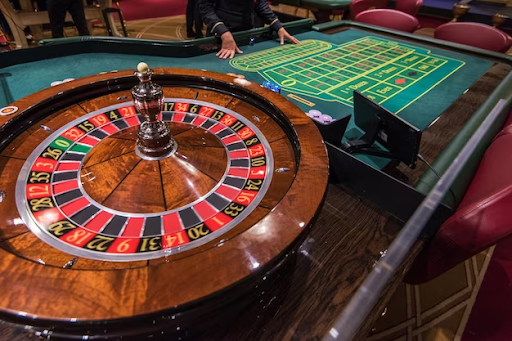In a world driven by excitement, it’s no wonder that gambling has become a popular pastime for many. The allure of the casino, the thrill of the race track, or the convenience of online betting all offer the promise of fortune and adventure. For most, gambling is a harmless form of entertainment, but for some, it can spiral into a devastating addiction. In this article, we will explore the dark side of gambling – addiction – and provide insights into recognizing its signs and seeking help.
Understanding Gambling Addiction
Before diving into the signs and seeking help, it’s crucial to understand what gambling addiction is. Also known as pathological slot gacor maxwin gambling or compulsive gambling, it’s a progressive impulse control disorder that affects a person’s ability to resist the urge to gamble, even when it has dire consequences for their life.
The Cycle of Addiction
- The Winning Phase: Gambling addiction often begins with a period of success. A few lucky wins can create a false sense of skill or control, making the person believe they can win consistently.
- The Losing Phase: This is where the problems start. As the addiction progresses, losses mount, and the individual begins to chase their losses by gambling more in the hope of recouping their money.
- The Desperation Phase: In this phase, the individual is willing to take greater risks, often borrowing money, selling assets, or resorting to illegal activities to fuel their gambling habit.
- The Hopeless Phase: Eventually, the gambler reaches a point of despair, realizing the damage done to their finances, relationships, and mental health.
- The Seeking Help Phase: Recognizing the need for help is a turning point. This is where the journey to recovery begins.
Recognizing the Signs
Identifying gambling addiction early is essential to prevent it from causing further harm. Here are some common signs to watch for:
1. Preoccupation with Gambling
A person struggling with gambling addiction will often think about gambling excessively. They may be constantly planning their next bet or reliving past gambling experiences.
2. Loss of Control
One of the hallmark signs of addiction is the inability to control the urge to gamble. Even when they promise themselves not to, individuals with gambling addiction find themselves back at the casino or online gambling site.
3. Neglecting Responsibilities
Addiction often leads to neglecting important responsibilities such as work, school, or family obligations. The person might skip work or miss important family events to gamble.
4. Increasing Bets
To achieve the same level of excitement as before, individuals may start betting larger sums of money. This is known as tolerance, a common sign of addiction.
5. Chasing Losses
Gamblers often engage in a dangerous cycle of chasing their losses by continuing to gamble in the hope of winning back what they’ve lost. This rarely ends well.
6. Hiding or Lying About Gambling
To avoid judgment or intervention, people with gambling addiction may lie about their gambling activities and hide their losses from loved ones.
7. Borrowing Money
Financial trouble is a common consequence of situs judi slot gambling addiction. Individuals may borrow money from friends, family, or lenders to fuel their habit.
8. Emotional Distress
Gambling addiction can lead to heightened anxiety, depression, or mood swings. The stress of financial losses and the guilt of hiding their addiction can take a severe toll on mental health.
9. Neglecting Self-Care
As the addiction consumes more time and energy, self-care routines and hobbies are often abandoned. Personal hygiene, exercise, and social activities may fall by the wayside.
10. Chasing the High
The primary motivation behind gambling shifts from winning money to chasing the high of excitement that comes with each bet. The financial aspect becomes secondary.
Conclusion
Gambling addiction is a serious and debilitating condition that affects not only the individual but also their loved ones. Recognizing the signs and seeking help are crucial steps towards recovery. Remember that overcoming gambling addiction is possible with the right support, determination, and professional guidance. If you or someone you know is grappling with gambling addiction, don’t hesitate to reach out for help. The path to a healthier, happier life begins with taking that first step.

